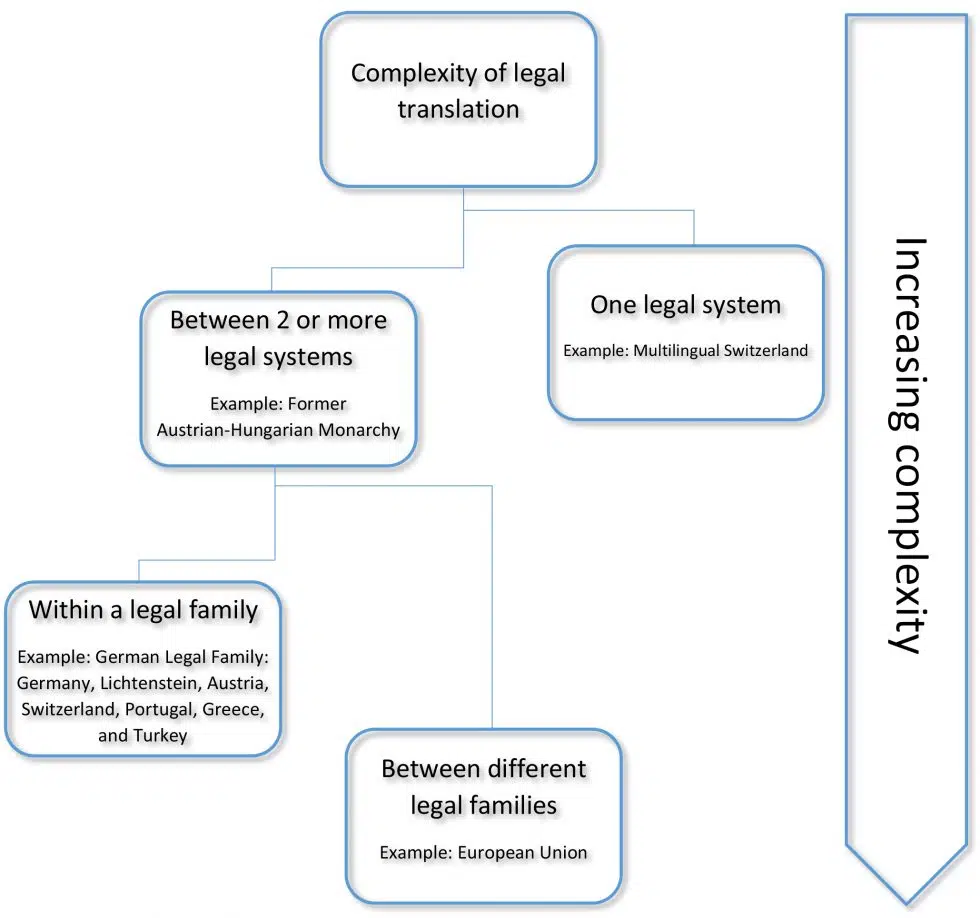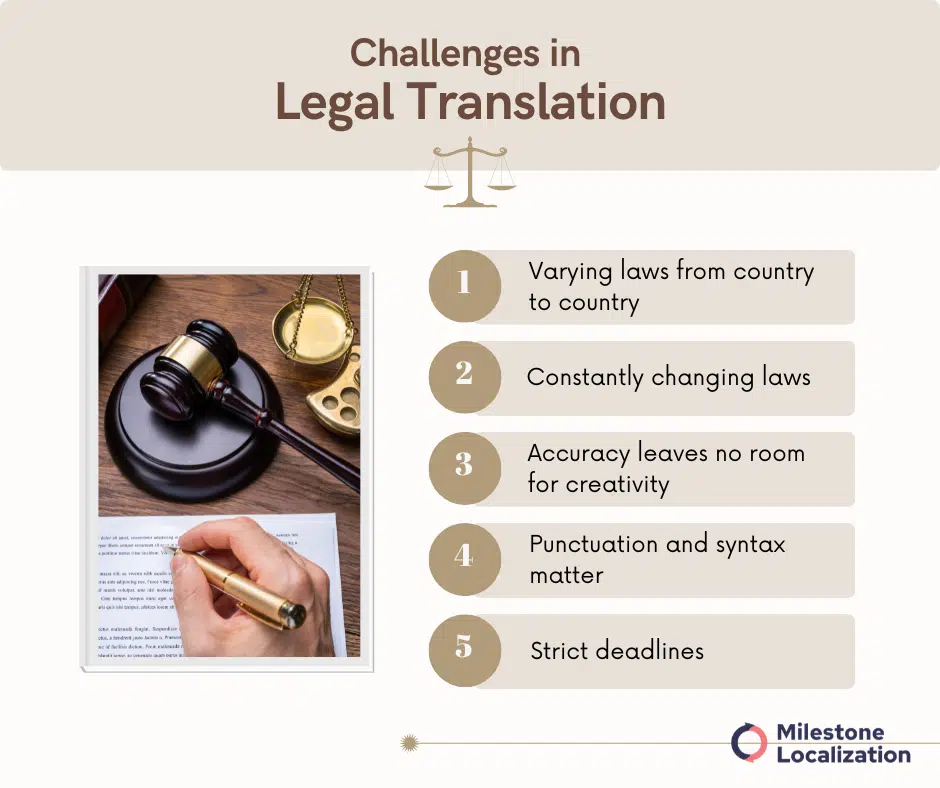What Do Legal Translation Services Do: Definition, Importance, And Usage Explained

Legal translation affects international affairs, business owners, attorneys, etc., daily. It can seem complex, but many corporations and people use it daily worldwide. Law firms require legal translation services regularly to decipher multilingual communities, entities, and individuals.
Businesses need legal translation services to comply with government regulations, conduct international commerce, and market to various language groups.
Acquiring legal translation services can be stressful, so we give you an insight into the world of legal translation.
What is Legal Translation?
Legal translation retains the original meaning of the legal documents and transforms the material into an easier or a different language. It ensures the legal background is kept secure. Various law-related documents can require legal translation. Such as:
- Complaints
- Wills and trusts
- Contracts
- Legal statements
- Litigation documentation
- Licenses
- Legal disclaimers
- Arbitration translation
- Confidentiality agreements
- Court and witness transcripts
Legalese, or the legal language, requires a professional trained in law to understand it. The professional must understand the laws, as the meaning should remain the same while translating.

Importance of Legal Translation
Legal document translation is very delicate, as a change in the meaning can have catastrophic consequences. The outcome of the translation should be reliable and accurate. A document improperly translated can affect a person’s legal rights. The legal translating team must be well-trained and understand the concerned country’s legal practices and businesses.
You must work with translators translating in their native language for the best results. You also require legal translation when you need to update previously translated material. Law firms generally send two document versions to their clients: a clean version and a version with track changes. It enables the clients to understand what has exactly been changed.
Legal translation has no room for misinterpretation, ambiguity, or errors. It can make the document void if there is a difference in the legal translation. There can be substantial financial and legal implications if there is a mistake in the translation.
Legal Translation Usage
Legal document translation services are used for and by:
1. Law firms
Legal translation services are essential for law firms from the case’s inception to its final ruling. It can have thousands of pages of documentation. Law is a discipline of many words, and some cases have vast amounts of it. Legal translation services have been crucial for law firms and attorneys for many years.
2. Legal research
Legal translation provides attorneys and law firms with increased information as they can reach into reports, online publications, and databases that might be useless otherwise. It ensures that juries reach an informed decision, and professional translators help the participants abide by and understand the legal system. They also help witnesses and clients understand what they can expect from the proceedings.

3. Checking validity
Legal document translation helps the government, companies, and law firms do justice by keeping accuracy in the documents. It leaves nothing out, and there is no scope for misrepresentation. It ensures that the rights of people are upheld, and each concerned participant is prepared and informed.
4. Workflow
Legal translation provides access to documents and information in multilingual cases. It can be beneficial to not go to trial and settle out of court. Legal document translation is required to ensure the wording is correct and precise. It can be difficult to reach a compromise without proper communication.
5. Businesses
Businesses with plans to sell internationally must have proper documentation in place. It has to have its legal documents translated into the native language of the market.
Difference Between Regular and Legal Translation
The primary difference between regular and legal translation is the content. You can translate any written material in regular translation, but you need certain texts with a specific language to translate legally.
You need to translate legal documents in a certain way with particular requirements. It ensures the document is not misinterpreted in a foreign country where the regulations and laws differ from the source country.
The legally translated text should always retain the original meaning of the text. While all documents contain different structures, a few points remain the same in legal documents while doing a legal translation. Similar points include references, statements, and definitions. The documents that require legal translation are generally in a standard form and follow similar rules.
While a regular document might vary depending on the purpose, legal documents vary according to the law-related subject matter. Legal translation contains specific languages and terms that might alienate people not trained in law. Legal translators are required for this as they are specialized in it.

About Legal Translators
Legal translators’ work is vital as they save their businesses, law firms, and governments from misunderstandings, errors, and wasted time. It is a high-stakes job, and translators need professional training. Translators must be fluent in legal systems and languages. A legal translator must have the following:
- Reliability: You can count on a legal translator to assess the turnaround fairly.
- Certification: Professional translators have the correct credentials to prove they have the required education and skills. It enables clients to know that the translator has gone through rigorous training.
- Impartiality: Legal translators translate the documents and the language and do not make assumptions or change the meaning.
Skills Required for Legal Translation
These skills are essential to translate legal documents successfully:
- Familiarity with the target language’s legal writing style
- Understanding the language target and legal systems
- The ability to understand and research legal definitions and transform them into the target language perfectly
- Familiarity with the terms used in the documents that need translating
- Ability to express the original meaning of the document that requires translating into the target language
Legal documents have unique and specific terminology, and legal translators help properly translate these into the target language. The work is not simply replacing words but translating, keeping the essence and true meaning in mind.
Legal language can have several meanings for specific words, and ambiguity and misinterpretation can have a catastrophic effect. A small mistake can lead to expensive complications. Legal translation transposes a legal concept in the target language, making the terminology legally binding and accurate.
Countries have different rules for licensing legal translators, and in some cases, translators require a legal translation degree on top of a business degree. Some countries even require legal translators to swear an oath before being accredited.
FAQs
The primary difference between regular and legal translation is the content. You can translate any written material in regular translation, but you need certain texts with a specific language to translate legally. You need to translate legal documents in a certain way with particular requirements. Legal documents have unique and specific terminology, and legal translators help properly translate these into the target language. The work is not simply replacing words but translating, keeping the essence and true meaning in mind.
These are the uses of legal document translation services:
1. For law firms
2. For legal research
3. For checking validity
4. For workflow
5. For businesses
Legal translators’ work is vital as they save their businesses, law firms, and governments from misunderstandings, errors, and wasted time. It is a high-stakes job, and translators need professional training. Translators must be fluent in legal systems and languages. They are reliable, certified, and impartial.
These skills are essential to translate legal documents successfully:
1. Familiarity with the target language’s legal writing style
2. Understanding the language target and legal systems
3. The ability to understand and research legal definitions and transform them into the target language perfectly
4. Familiarity with the terms used in the documents that need translating
5. Ability to express the original meaning of the document that requires translating into the target language.
Latest Blogs
Explore how Google’s 2025 AI search updates triggered ranking chaos. Learn actionable strategies to adapt your SEO for AI Overviews, zero-click searches, and SERP volatility. Stay ahead now.
Learn how to rank on AI search engines like ChatGPT, Perplexity, and Gemini by optimizing your content for authority, structure, and relevance. Stay ahead in AI-driven search with this strategic guide.
Explore the best healthcare SEO services for your medical practice. Improve online visibility and effectively reach more patients in need of your services.
Get your hands on the latest news!
Similar Posts

Translation
5 mins read
All You Need to Know About Language Translation and Terminology Management

Translation
5 mins read
6 Reasons to Translate Content into German

Translation
5 mins read